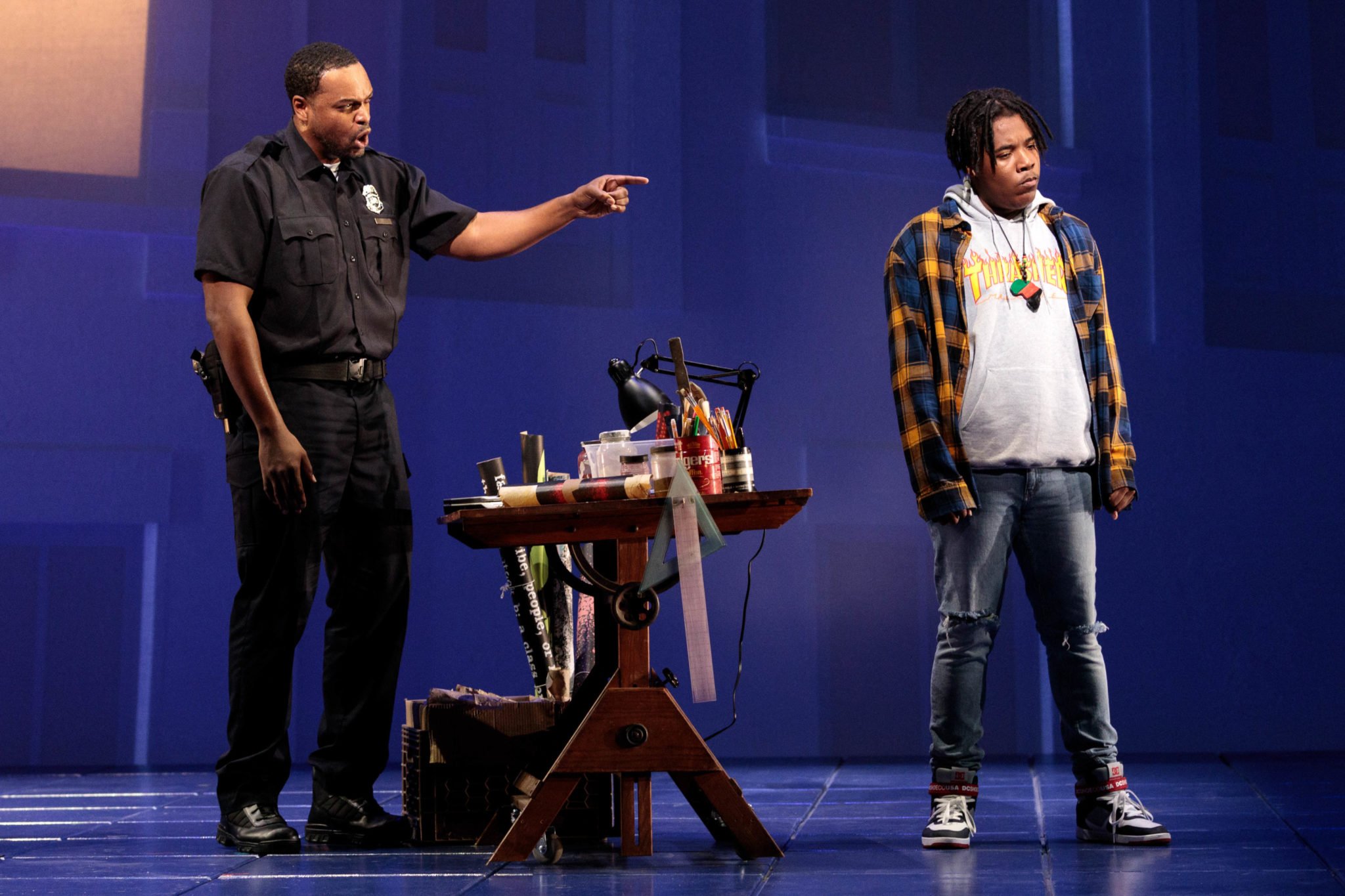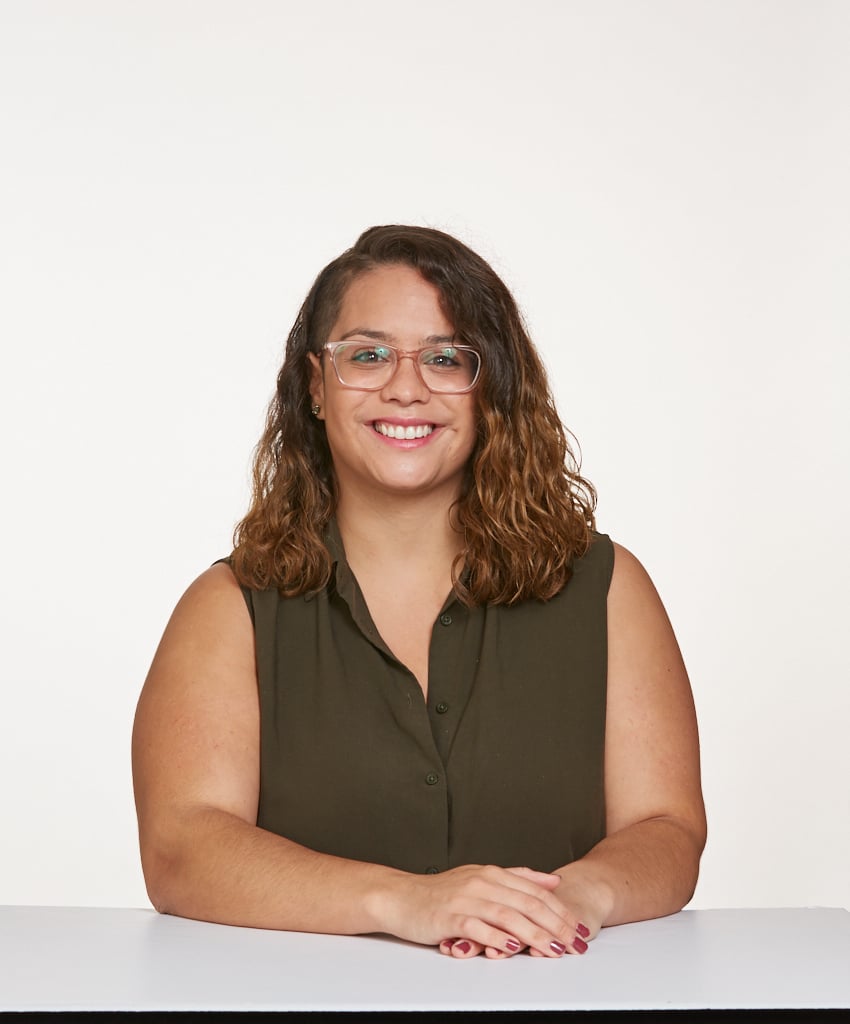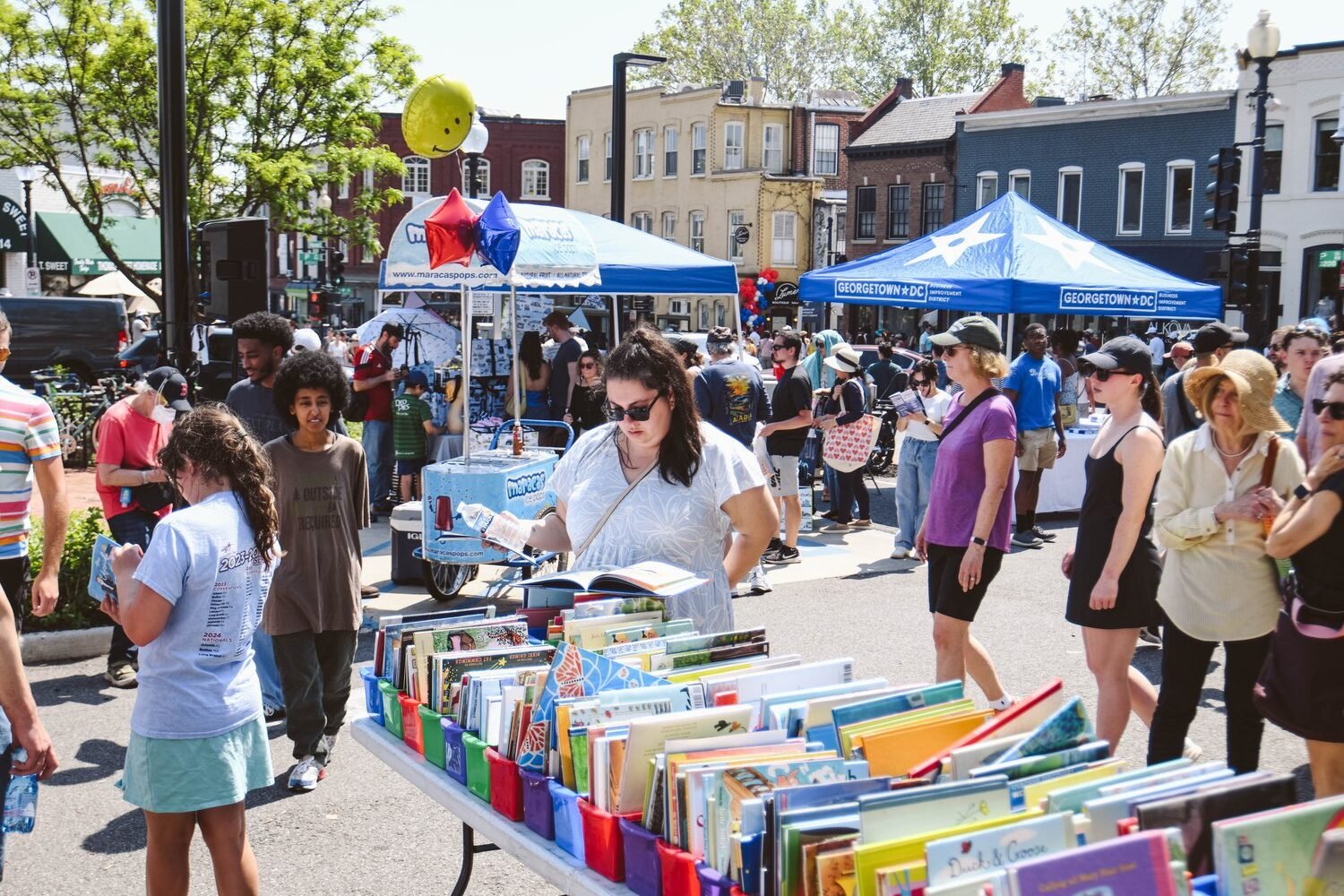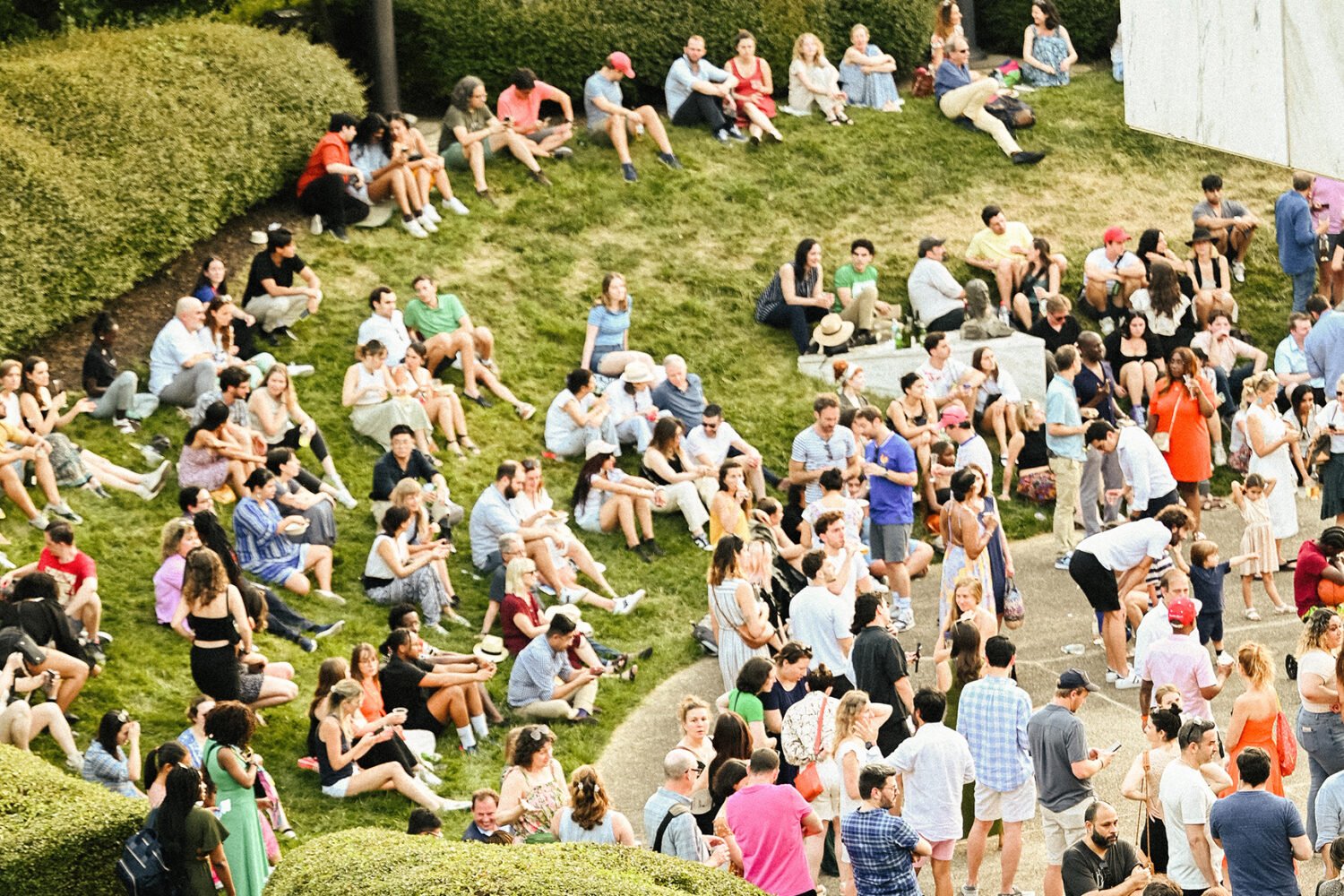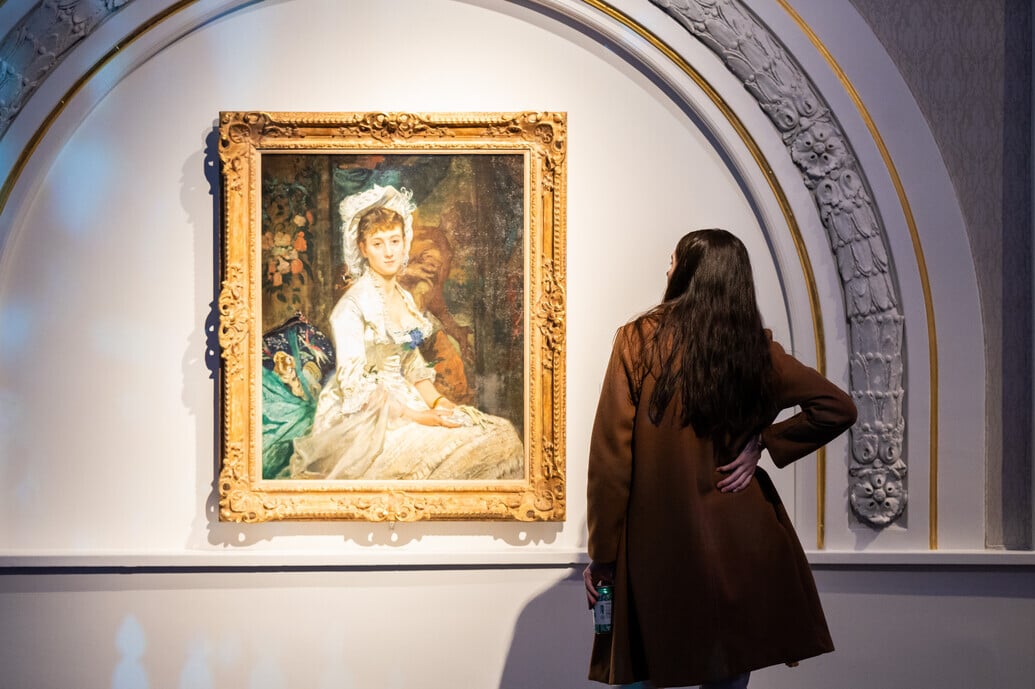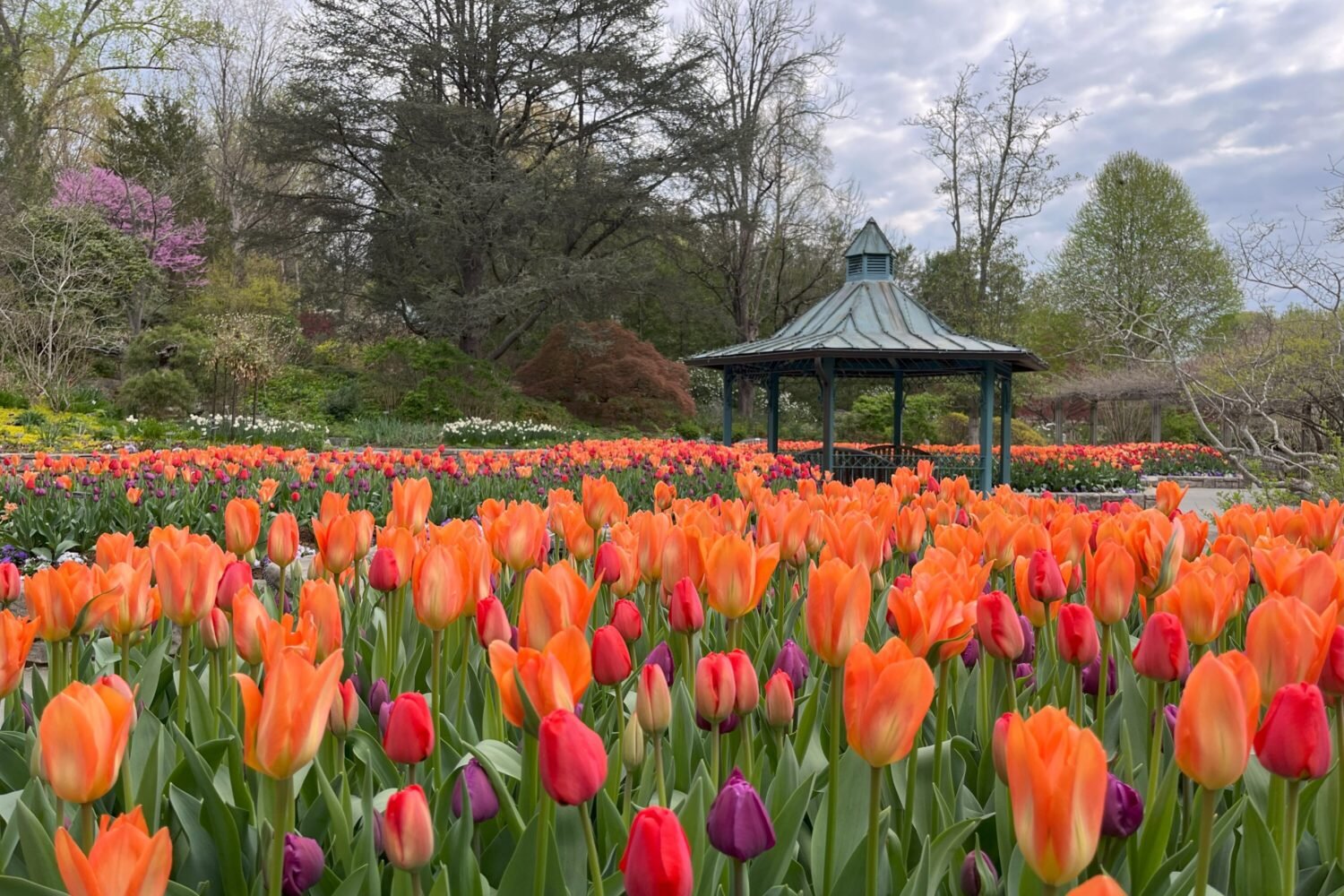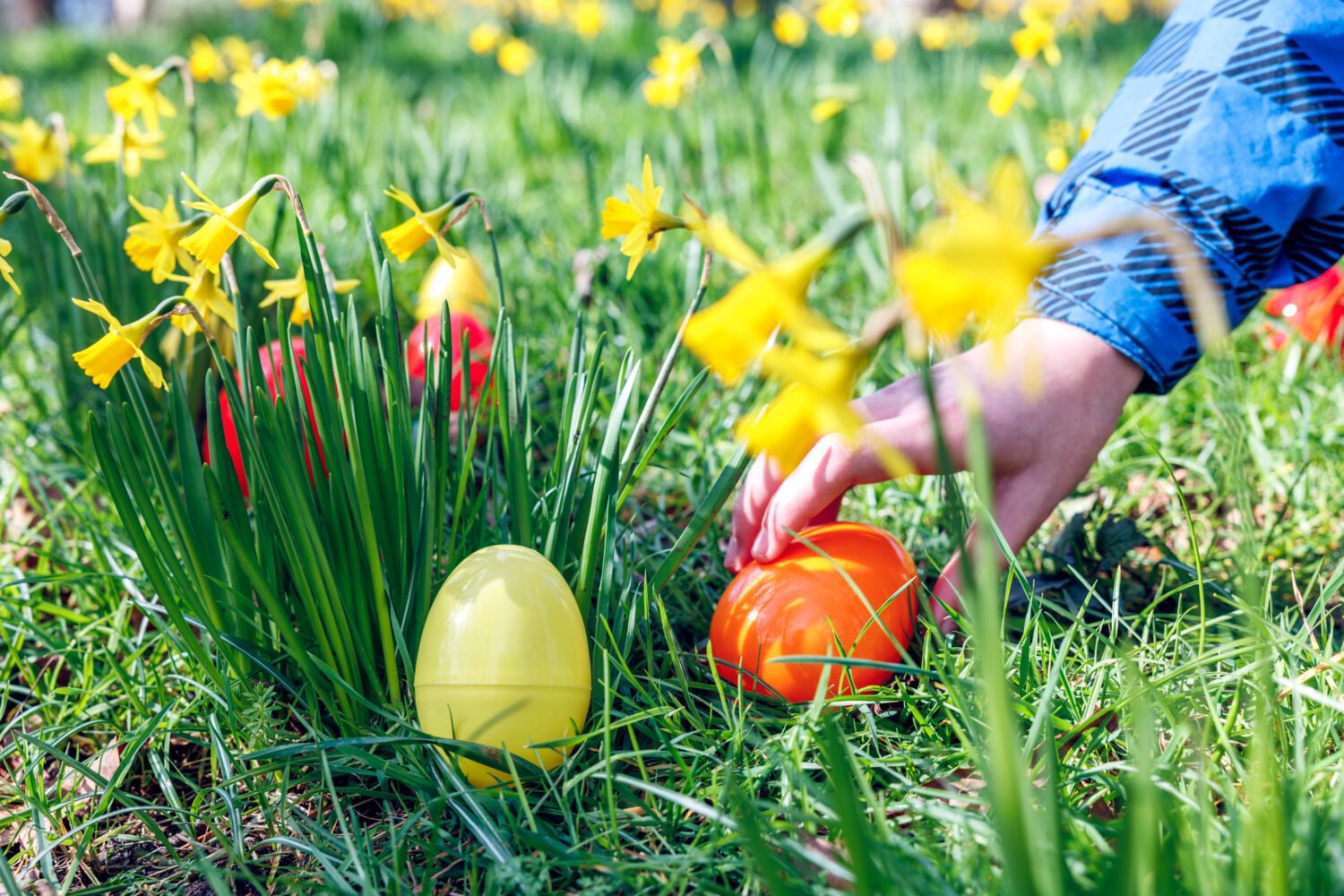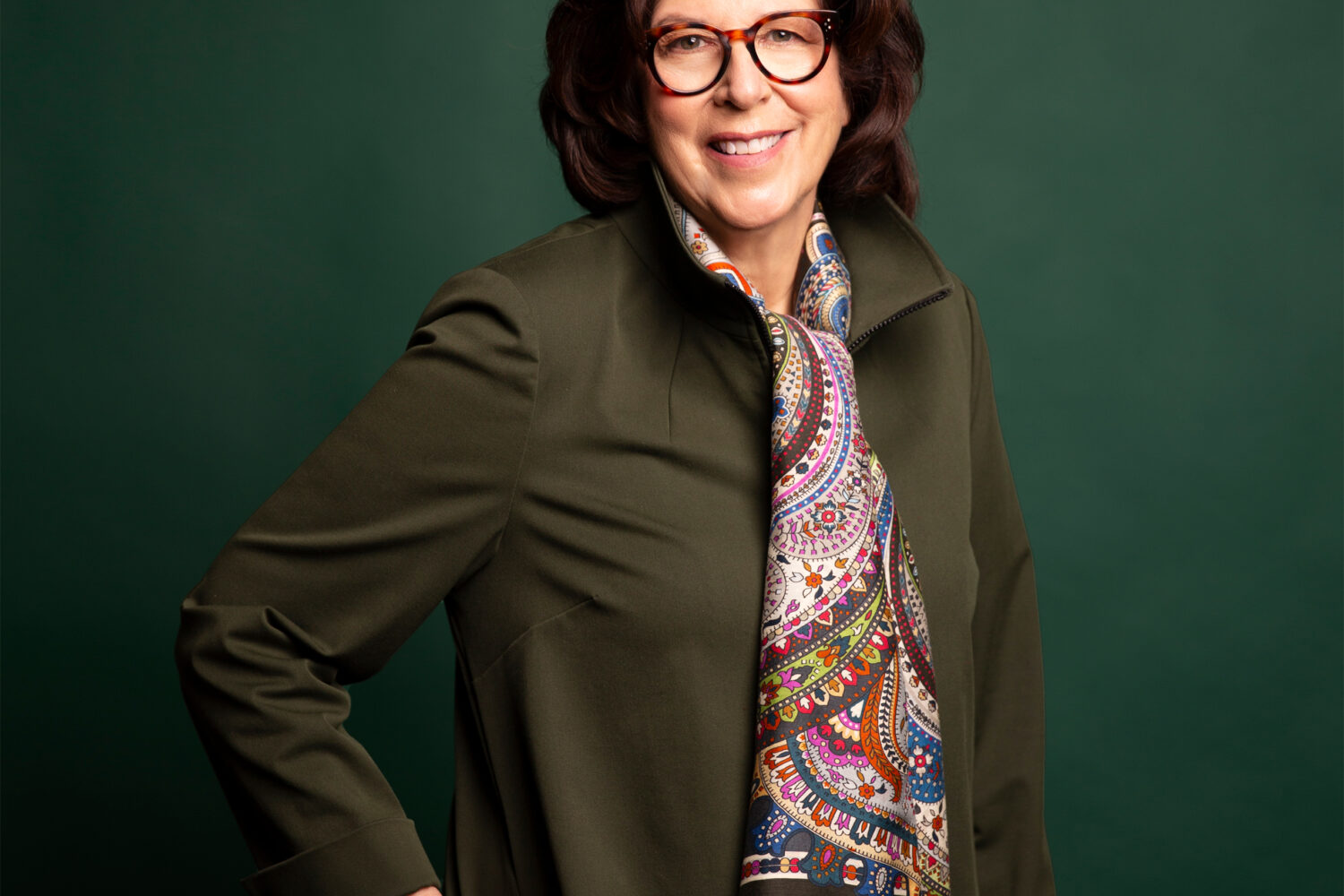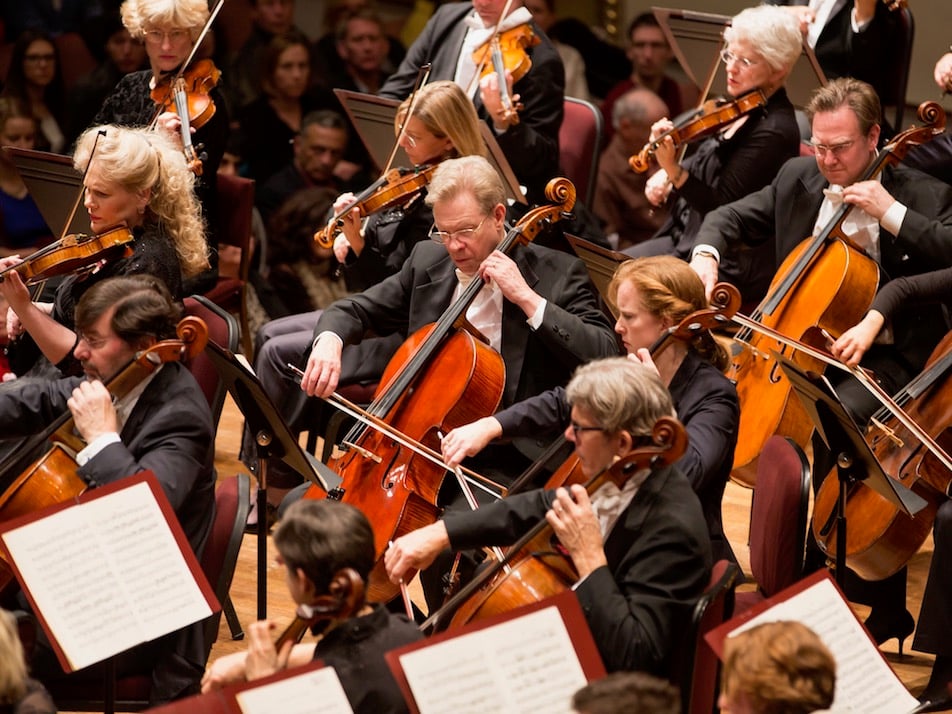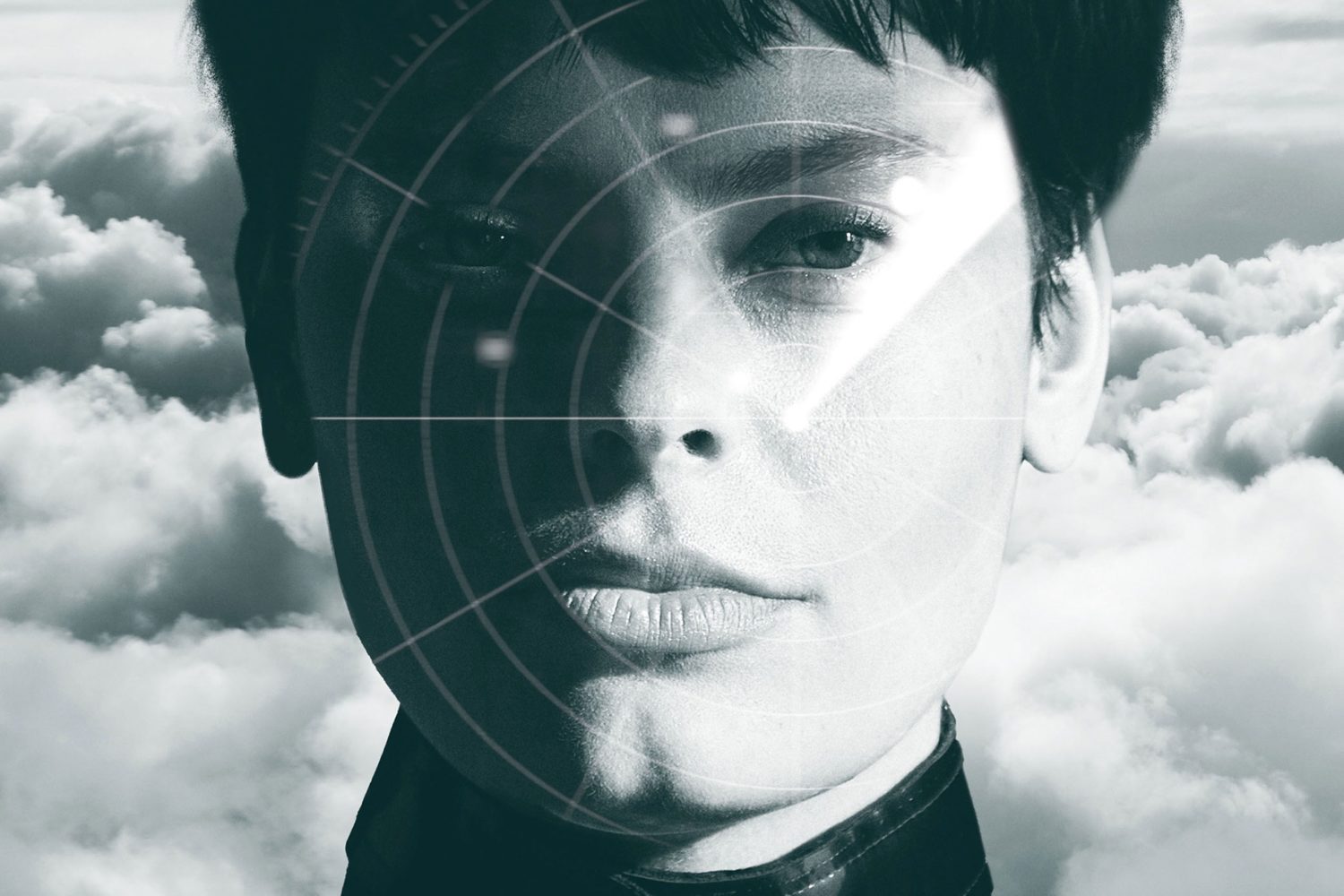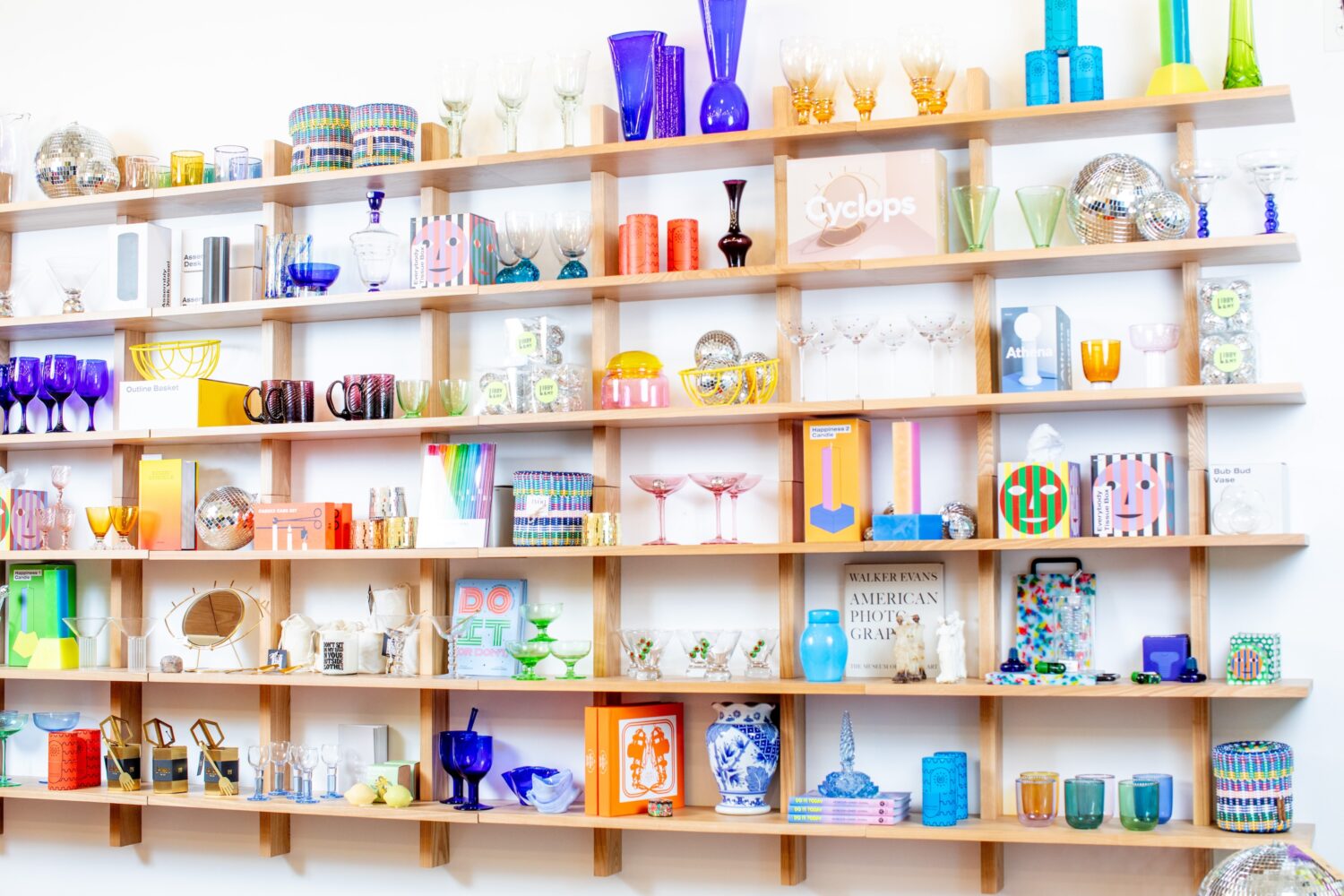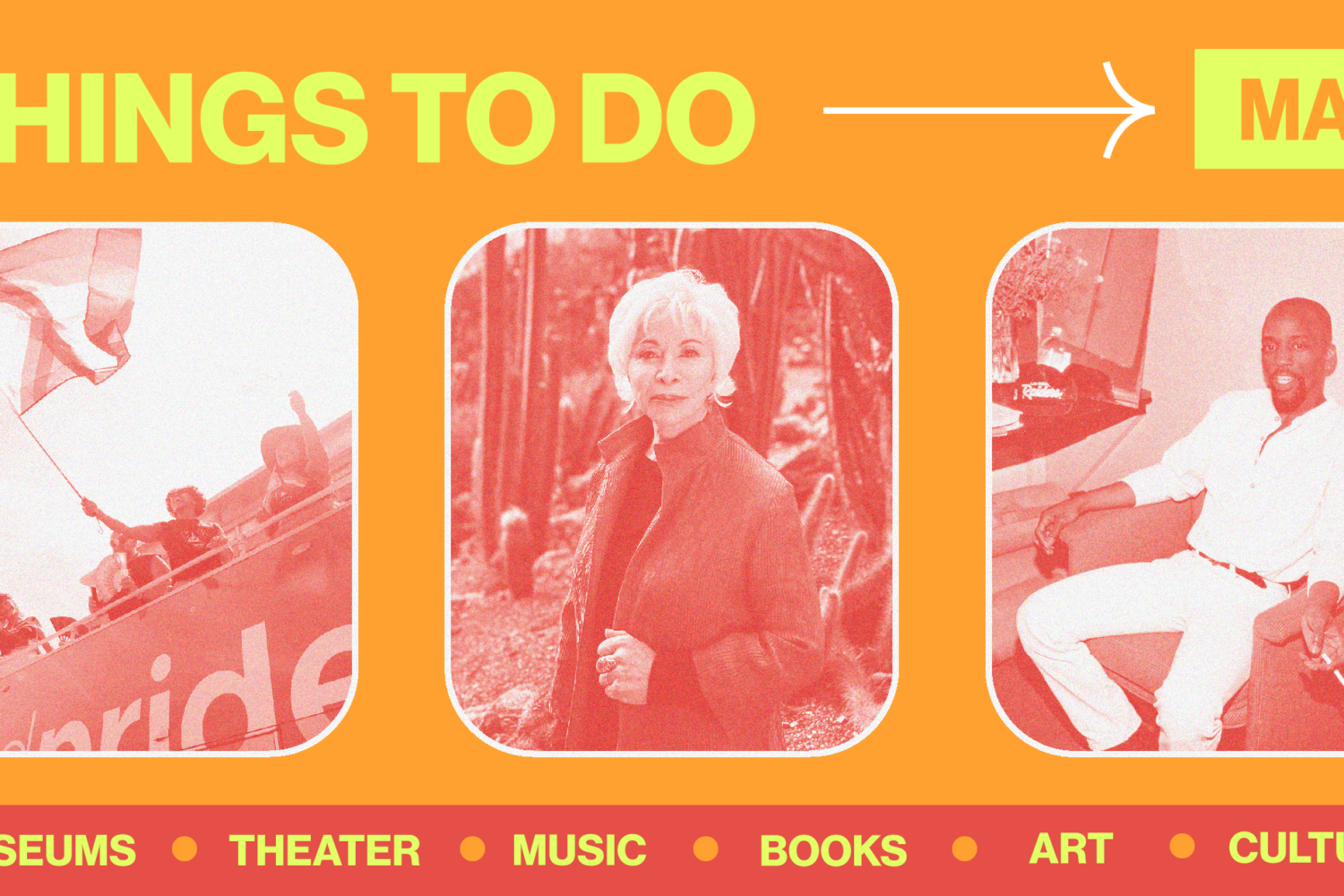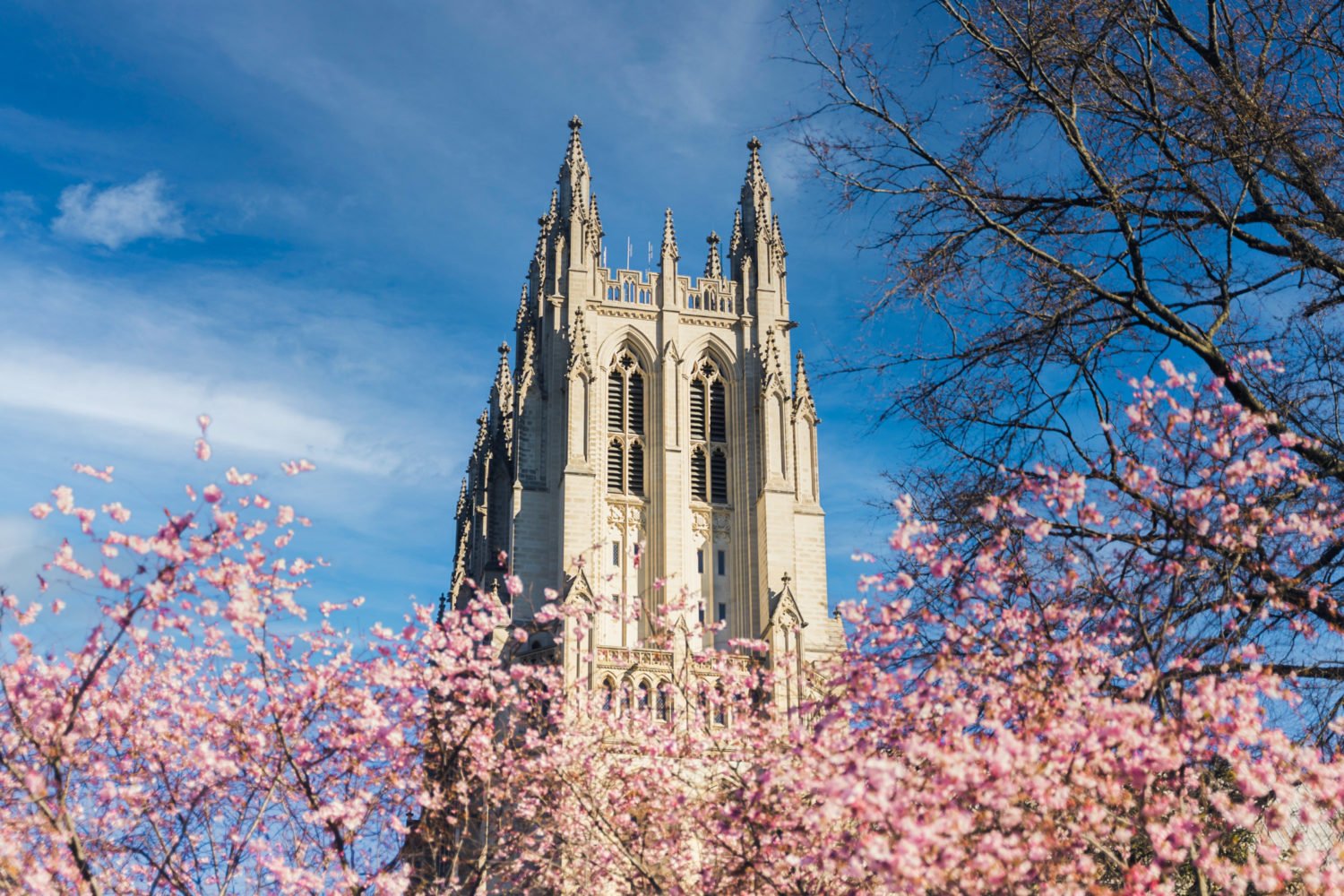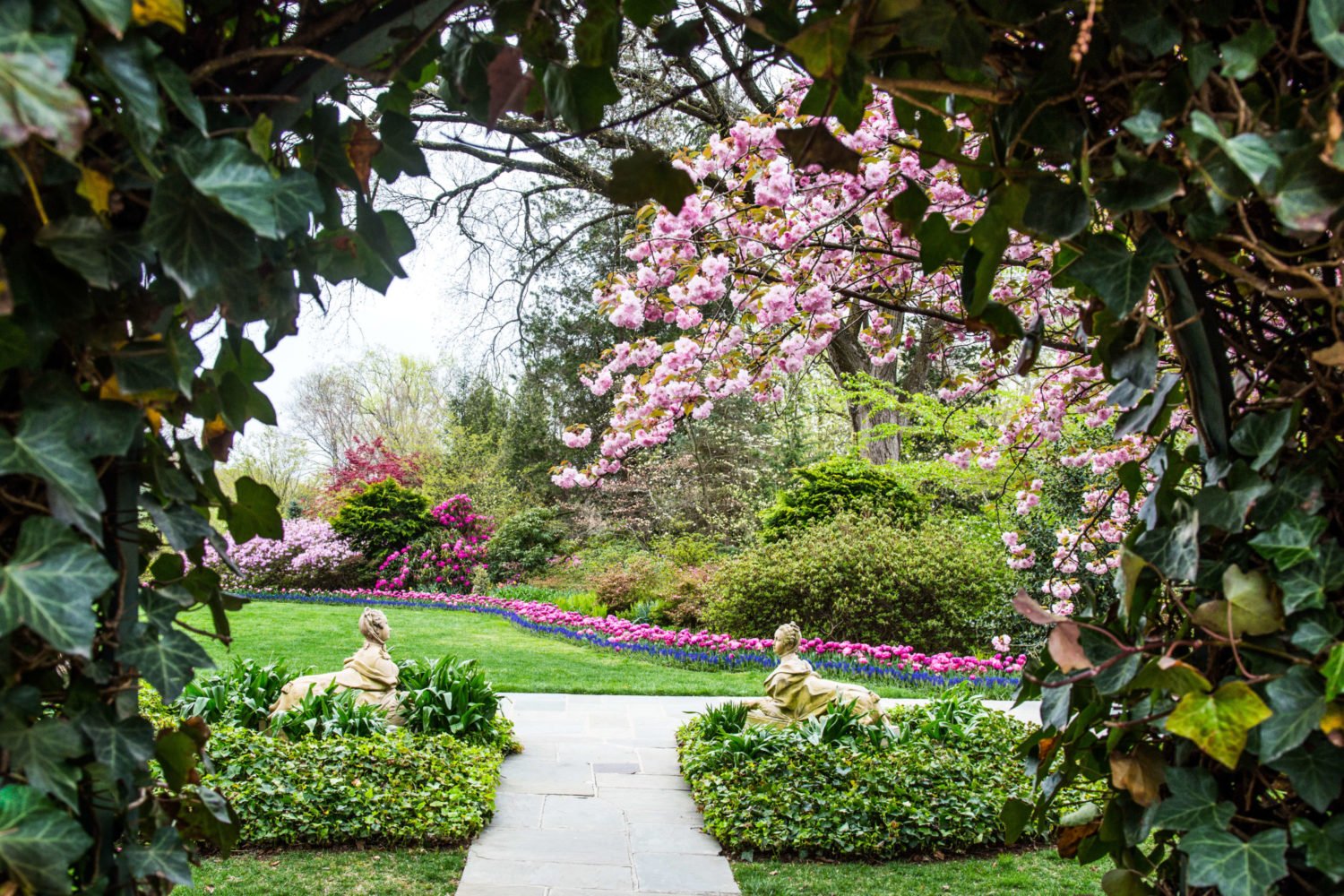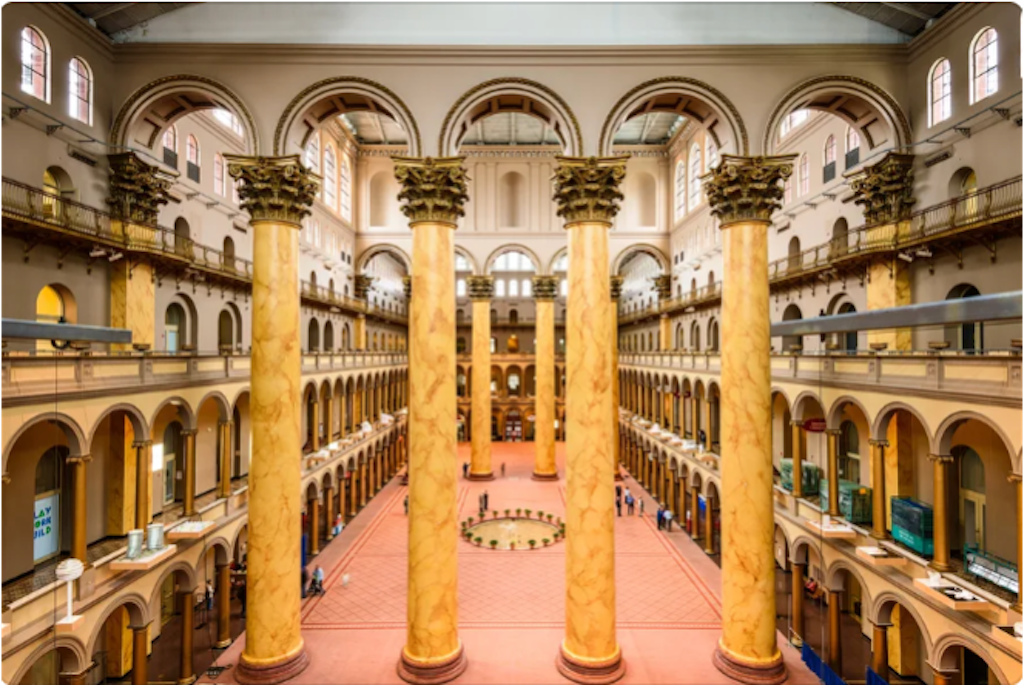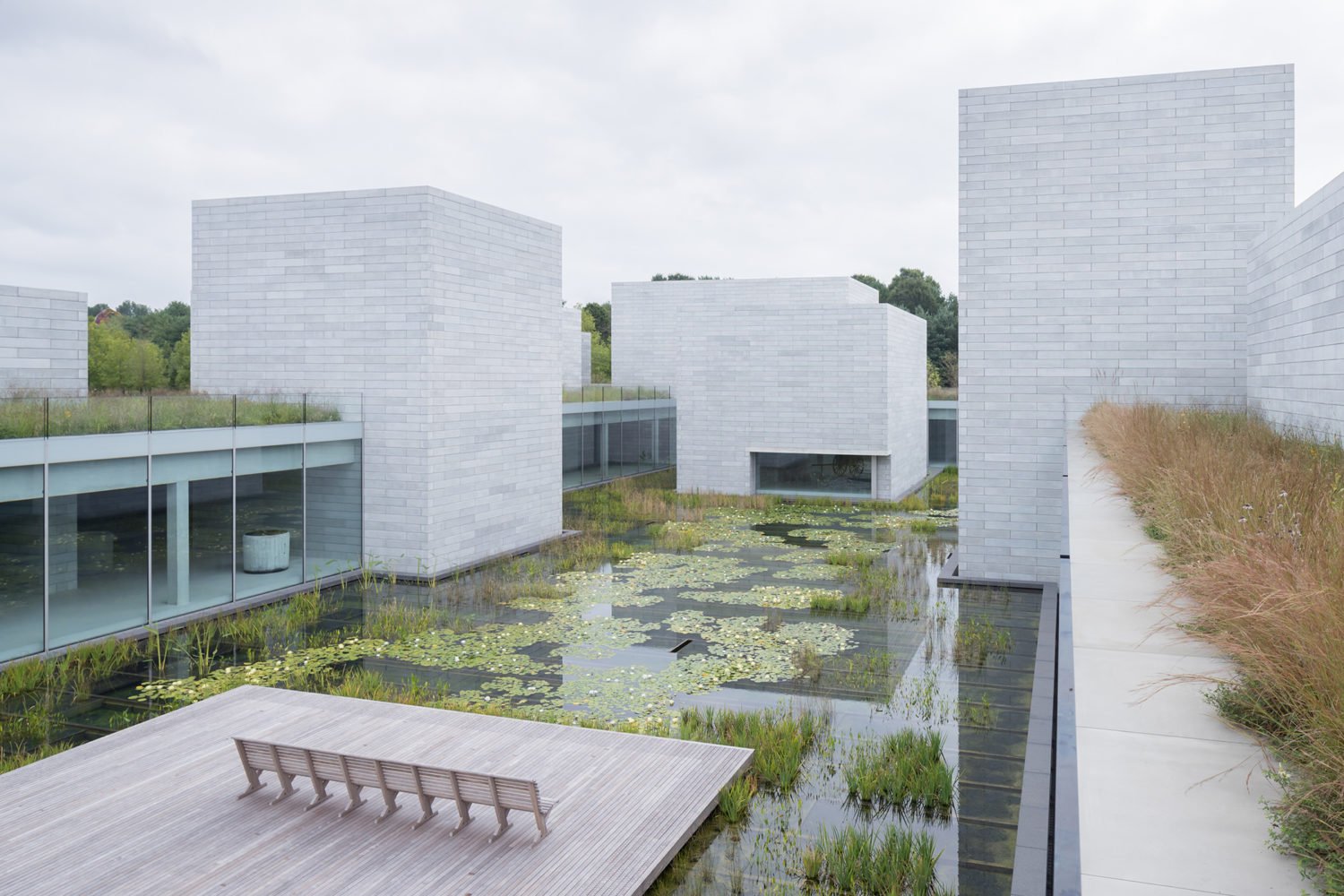When Covid-19 cancellations rippled through the Washington arts scene in March, one big loss was the Washington National Opera’s highly anticipated Blue. Written by Tazewell Thompson with music by Jeanine Tesori, the opera is about a community’s pain when a white cop fatally shoots a young man who happens to be the son of a Black cop. Just two months after Blue’s DC run was postponed to a future date, a Minneapolis cop killed George Floyd on camera and thousands of protesters poured into streets across the country. The very conversation that Blue kicked off at community events earlier this year—panels and previews around DC that featured the cast as well as former and current police officers—was forced back into the national spotlight.
For California-based opera singer Kenneth Kellogg, who plays The Father, Blue’s Kennedy Center run was supposed to be a homecoming. Kellogg grew up in Brightwood, and his DC-based family and friends were excited to see his new role. While in rehearsals, Kellogg even saw his face on Blue ads on the E4 Metrobus, the same one he used to commute to Duke Ellington School of the Arts years ago. We talked to Kellogg about national protests, the power of Blue, and why its performances can—and should—wait.
Tell me about Blue. Just last week, the Music Critics Association of North America awarded it “Best New Opera.” Why was this work so important for opera audiences, specifically?
Even within the opera industry we talk about ‘white hairs’ in the audience. Opera-goers being predominantly white, we try to get a diverse audience as well as a diverse representation on the stage. But your typical opera-goers aren’t forced to empathize with Black lives, you know? Rarely do you go to the opera and see Black people onstage really letting you know how they feel with a story written by a Black librettist. So a lot of the talk around Blue, around operas that represent Black people, is, “Oh that’s another Black opera.” And I don’t specifically know what that means, outside of it’s an opera with Black people [chuckles], but once you get past the people, opera is ultimately about emotions, it’s about music, it’s about feeling, it’s about heart, it’s about soul, it’s about storytelling.
I have to strip my clothes off and I’m standing almost naked in front of these white eyes, not knowing what they’re going to expect.
Though its Kennedy Center performances were canceled this year, Blue did premiere in 2019 at the Glimmerglass Festival in Cooperstown, New York. How did that first run go?
There are not a lot of Black people going up there. I took my family to the drive-in movie theater and we were warned [that] there might be some people who might not like you, who fly a Confederate flag. There was an issue of us having to watch each other’s backs there as Black people. These aren’t conversations we had with staff, these are conversations we had amongst ourselves. But you have all of this tension in this white community and we’re doing an opera about police violence. It was an interesting dichotomy of emotions. Blue felt very much like family in rehearsal—there was so much support and so much love in dealing with this trauma. When we did [perform], it was really powerful. The response afterwards was amazing. I used to walk with my son through Cooperstown, go down to the lake every morning and see the ducks. There were people who literally stopped us in the streets to thank us and tell us how impactful it was for them and the conversation that it sparked when they got home. I also heard of people who had to leave very early in the show because they couldn’t deal with the subject matter.
You play a Black police officer and a father. How did you approach the role?
I got to a point in my career where I felt like opera wasn’t speaking to issues that were really pertinent to my life and my community and it felt a little empty. [With Blue,] for the first time I could use my art to speak to issues that really mattered. I get to play a Black man in America. So Blue for me was the ability to use my art to speak to power, speak to issues, really make a difference in ways that I hadn’t been able to use my art before.
In the prelude, I’m sitting onstage with my back to the audience. I’m wearing street clothes, with a Negro League jacket, and I literally stand and face the audience, which feels like an eternity. And it’s silence. Typically opera has a lot of white audiences, especially when we did it in Glimmerglass. I literally feel all the judgment, feel all of the stereotypes, all of the questioning, all of the, “Who is this Black man?” I can feel it all and just take it all in. How much of it is based on just not knowing, or not even caring, or not having to think about who this person really is? It’s a very powerful moment for me as an actor, standing—almost naked. Then after that I have to strip my clothes off and I’m standing almost naked in front of these white eyes, not knowing what they’re going to expect later in the opera. [I] feel like George Floyd and Eric Garner, [I] feel like Tamir Rice. You have no idea who I am. Standing in front of you is a Black man, accepting all of your biases, accepting all of your judgments, accepting all of what you don’t know about me. I have to just accept it, because you don’t know.
The production was rather personal for you: Promos used photographs from your own newborn photo shoot and your son, who is still a toddler, appears onstage briefly. What was it like to have your real son involved in this particular performance?
That in itself was painful. Here I am having to deal with the pain of losing my son in the show while my real son is in the room. It was like living my worst nightmare every day in rehearsal. Every night I would go home and hold him a little tighter.
And that’s how it was for everyone. Blue for the cast felt like therapy. We were able to deal with these emotions that we couldn’t really let go. There wasn’t a day in rehearsal that somebody didn’t break down and cry.
How did you feel when you heard about George Floyd?
I was crushed that we couldn’t share this message with the community. It was like, “We need to be singing Blue.” But these latest incidents prove that the subject matter is always relevant, unfortunately, and even more relevant today.
I daresay now I’m glad it got canceled. Because more people are looking for the conversation now. So when Blue hits the stage [in the future], it will have so much more resonance. And it won’t simply be entertainment. I talked to a lot of people [who said], “Oh I’m so looking forward to coming to Blue,” and it was this feeling of entertainment—not expecting to be affected, almost. I think it has a different weight now. If we did Blue right now, it could be a distraction from the expression of rage that really needs to be heard. Often people can go and sit in an opera house and escape what we really have to face and I’d rather people just deal with the pain of the moment, as opposed to trying to escape through a production. It’s easy to go, “Oh I saw Blue and I can support the moment,” but we need to feel this pain right now, as a community.
How do you think future performances might change?
It’s impossible to go back to Blue and have the same conversation. With the writing literally all over the world? This is a major shift in the ideas that people have about policing and about Black people in America, period. I think more white people will be engaged and will want to show some level of empathy. They’re being forced to see. It’s hard, almost damn near impossible to unsee that video [of George Floyd’s killing]. That will cause different questions to be asked, the level of willingness for empathy will be deeper, the level of willingness to call out inequities is gonna be greater. And I think the conversation has expanded beyond, it’s not just about police. I think Blue will have a greater impact moving forward.
You’re based near San Francisco now. How was has it been watching DC protests from afar?
I wish I could be there and let my voice be heard. To see “Black Lives Matter” [on] the street leading up to the White House [with the newly renamed] Black Lives Matter Plaza is absolutely amazing to me. It’s difficult to say. So much can happen in DC; so much also can not happen in DC. The more that we fuck up and the more that we riot and the more that we scream and the more that we yell, the more that we destroy, the more solutions we get—which is so crazy. But that’s the reality of progress in our country. You gotta fuck shit up until people have to listen to you.

